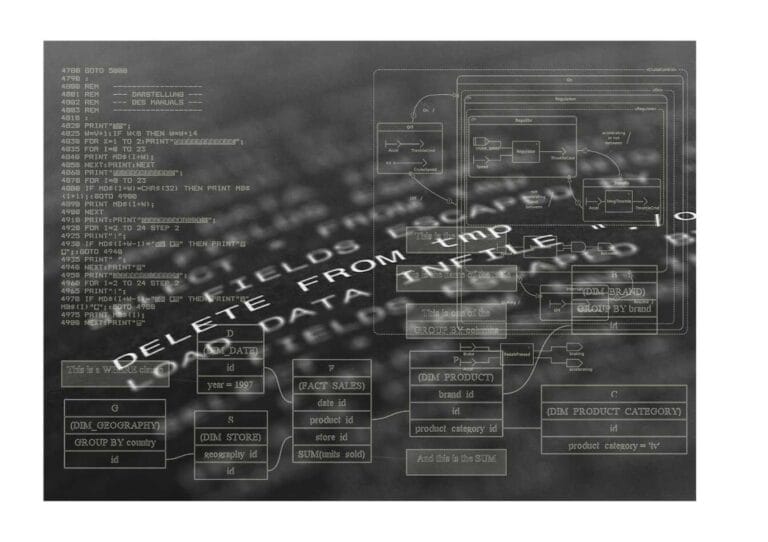Last updated on January 6th, 2026 at 02:42 pm
Hey, I’m not going to pretend that I ever wondered about this. But one evening, my Netflix started buffering, and I was annoyed enough to actually pose the question to myself: How does my Wi-Fi router magically connect me up with a server thousands of miles away?
It’s way more interesting than I thought it’d be, as it turns out.
Table of Contents
The Basics: Your Message Makes a Wild Ride
Here’s what blew my mind. When you send a message to the server or request its website, however, your data does not travel in one giant piece it breaks down into tiny parts known as packets. Think of it as mailing a puzzle one piece at a time.
Each packet includes the data itself, as well as header information that tells network devices where to send it. It’s as if you have to write the address on each piece of a jigsaw puzzle by hand.
What’s wild? These packets can travel different routes to the same place, and be reassembled on arrival. Your cat video doesn’t travel in one direction. it is spread across intersecting highways of cables and signals, only to magically converge again on your screen.
The Internet’s Phone Book Explained: How Your Browser Finds Websites
I always typed “www. google. com” without thinking twice. Well, computers don’t know from words they do numbers.
Enter DNS (or Domain Name System). It is the internet’s phonebook, translating human-readable domain names such as www. example. com into the series of numbers that computers use to identify one another.
So when you type a web address, your browser sends out a query to find that web server’s corresponding IP address before it connects. It’s all happening in milliseconds, totally invisible to you.
Why Your Internet Is Slower at Night
This one actually solved my problem of Netflix websites. Use network congestion is at peak times when there are a high number of users using the internet in roughly the same period ie evenings and weekends.
Essentially, everyone in your neighborhood is all streaming, gaming and video calling at once. Your ISP’s transport network could become congested, and shared links (for example, cable internet) will split up bandwidth among all active users in your vicinity.
It’s not your router slacking off. it’s just rush hour on the digital highway.
(The Stuff Coming Next And It’s Pretty Cool)
As I was reading through all of that, though, I fell into the future tech area. There is some really exciting work in progress.
6G networks look to arrive around 2030 and will bring speeds that are 100 times faster than 5G with sub-millisecond latency times, just as AI gets native network optimization. We are talking terabits per second and that is absolutely ridiculous from what we have today.
But the really sci-fi bit? Quantum networking will leverage quantum physics laws to unlock ultra-secure communication and groundbreaking computing power, including Quantum Key Distribution (QKD) for unhackable encryption. Quantum communication market was valuated at $1.2 billion in 2024 and is projected to be valued at approximately $10.5-14.9 billion by 2035.
Yeah, I wasn’t anticipating reading “quantum” in my internet rabbit hole either.
What I Actually Learned
Honestly? The internet is not magic it’s super smart engineering. Your data is zipping back and forth around the planet in minuscule fragments, everything still gets reassembled perfectly, while outside of your perception.
None of this turned me into a network engineer, but I at least came to understand why things work the way they do. And when I have issues with my internet now, I at least know what questions to ask.
FAQs
How is the Internet different from the World Wide Web?
The internet is the worldwide network infrastructure and protocol connecting billions of devices. The internet includes the World Wide Web (WWW), which is an interconnected system of web sites and pages, hand assembled using standard web browsers to make a cohesive virtual space.
Imagine the internet as the system of roads, and the web is one particular type of vehicle that can travel on those roads.
Why is my internet so slow when I’m far away from my router?
The latency, or time it takes for a request to go out and get back, grows with physical distance. Further traveling data arrives later and the-time propagation delays are augmented. Even with fast download speeds, latency can make up for 90% of the total round trip time to request and retrieve content.
That’s why you experience a slower server if it is across the ocean rather than in your city.
Can I do anything to make my Wi-Fi actually faster without paying more for an internet plan?
Yes! If it’s not possible, do the next best thing: Place the router as high in a room as you can its signal typically broadcasts downward.) You can also update your router’s firmware, reduce physical obstructions between it and your gadgets and switch Wi-Fi channels to avoid interference from other devices or fill big spaces with multiple extenders or mesh systems.
Because sometimes it’s not about speed … It is about signal quality and placement.
I’m a technology writer with a passion for AI and digital marketing. I create engaging and useful content that bridges the gap between complex technology concepts and digital technologies. My writing makes the process easy and curious. and encourage participation I continue to research innovation and technology. Let’s connect and talk technology!



